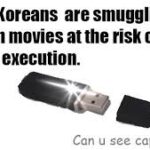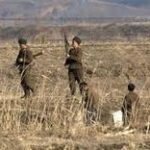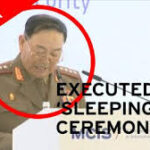“To do nothing about North Korea would be the most dangerous option of all” – a warning given in 2003
Also see:
https://www.davidalton.net/2017/04/18/north-korea-drinking-in-the-last-chance-saloon-a-state-without-parallel/
an article which I co-authored together with Jose Ramos-Horta, Nobel Peace Prize Laureate and former President of Timor-Leste, and Ben Rogers.
http://www.huffingtonpost.com/entry/sanction-the-north-korean-regime_us_595565a8e4b0f078efd98856
and see article in JoongAng about how North Korea’s illicit activities in Europe are inherently interconnected with its human rights abuses.
http://koreajoongangdaily.joins.com/news/article/Article.aspx?aid=3033481
North Korea
HL Deb 13 March 2003 vol 645 cc1545-681545
§ 7.32 p.m.
rose to ask Her Majesty’s Government what is their policy on the threat posed by North Korea to international security and to the human rights of its citizens.
The noble Lord said: My Lords, I am glad to have an opportunity to ask a Question that I tabled last November. It allows us to consider the international crisis sparked by North Korea’s decision to reopen its nuclear reactor at Yongbyon and its continued serial abuse of human rights. I am extremely grateful to all noble Lords who will participate in this debate, particularly the Minister, the noble Baroness, Lady Symons, who must be under great pressure at the moment. Many of us greatly admire the way in which she is handling her onerous responsibilities during the present international crisis.
Unfolding events in Iraq have inevitably distracted us from the arguably even more dangerous crisis posed by North Korea. If North Korea reactivates its plutonium reprocessing plant, also located at Yongbyon, it could reprocess 8,000 spent fuel rods and would be able to produce weapons-grade plutonium within weeks, accumulating enough material for about six bombs before the end of the year. The United States Government believe that North Korea may already have such nuclear weapons.
Some noble Lords may have heard the report on the BBC’ this morning from its state department correspondent, Jon Leyne. He reported that experts believe that the north could soon have a production line that could produce up to a bomb a month. The BBC also reported that sources in Tokyo believe that Pyongyang may be preparing to test a Rodong medium-range ballistic missile that is capable of reaching most of Japan.
As the former US Defense Secretary William Perry recently remarked:
I believe that Korea is the most dangerous spot in the world today”.In 1994, the Clinton administration concluded the Agreed Framework with Pyongyang. From its inception, the accord, which had a price tag of some 5 billion dollars, fell significantly behind its schedule, most notably in failing to deliver two light-water reactors in return for the abandonment of the highly enriched uranium—HEU—nuclear programme.By 2000, while the North Korean missile talks were collapsing, North Korea had clandestinely recommenced the HEU programme. That was exposed by US intelligence in July 2002. Kim Jong-il conceded that he had broken the agreement. He 1546 expelled the International Atomic Energy Authority monitors and pulled out of the nuclear non-proliferation treaty. Since then, Pyongyang has been demanding bilateral negotiations with the Bush Administration, characterised in Washington as “reward for had behaviour”. The belief is that giving in to blackmail leads only to more blackmail. So far, the US response has been very measured not only to the provocation of the recommencement of the HEU programme and the recent intimidation of a US plane in international airspace but also to this week’s ballistic tests in the Sea of Japan.
This evening, given the Prime Minister’s declaration that he sees North Korea as the next challenge for the international community, I hope that the Government will share with us their view of this crisis. Do they, for instance, believe that there is any realistic prospect of a new comprehensive mechanism to replace the 1994 Agreed Framework and a commensurate abandonment of the HEU programme and any possible plutonium-based programmes in return for a non-aggression pact? Can the Minister tell us what progress is being made in engaging regional players, most obviously China, Japan and Russia? Following the recent visit of Mr Bill Rammell to the region, what role are Her Majesty’s Government and the EU playing in creating conditions for negotiations? What is our view of the demands by North Korea for bilateral talks in contrast with the insistence by the US and others on a multilateral approach?
The Minister will have seen the view expressed earlier this week by Yoriko Kawaguchi, the Japanese Foreign Minister, that the UK could play the role of an honest broker. What is the Government’s view of that and of the use of sanctions and isolation, containment and negotiation? I hope that she will share with us an analysis of the events that would pave the way for the use of force. For instance, does the Minister believe that the United States would be forced to intervene if North Korea attempted to export nuclear weapons or directly threatened the US mainland? Can she give us an assessment of the dangers that she believes are posed to South Korea and Japan? Could she also explain what Mr Rammell meant when he said last week:
I think this is going to get worse before it gets better”?The threat to international security posed by North Korea may best be considered by way of pernicious actions against its own citizens. North Korea’s Stalinist dictatorship has treated its own people with unbelievable brutality and viciousness. The people are starving, the hospitals are without medicine and a whole generation has grown up stunted and mentally retarded because of malnutrition. Sixty per cent of the people starve. During the past decade, up to 3 million people are estimated to have died of famine, and aid agencies estimate that 70,000 children will die in the next few months. Those who dare to dissent are sent to re-education camps or to prisons.I tabled this Unstarred Question because last October a North Korean Christian who had escaped from the country came to see me here at Westminster. His story was harrowing and disturbing. He told me 1547 how he had seen his wife, and all bar one of his children shot dead by Kim Jong-il’s militia. He subsequently escaped across the border to China with his one remaining son. The boy died en route.
He encouraged me to read the prison memoirs of Soon Ok Lee. In them she describes in detail the brutality and barbarism of the system in North Korea. Anyone who believes it is right to appease this dictator should read Eyes of the Tailless Animals. It is Soon Ok Lee’s account of the sham judicial system, the show trials, the starvation, the forced labour, the degradation, humiliation and rape of prisoners. Through her eyes we get a glimpse of this corrupt, paranoid and tyrannical regime. I will place a copy in the Library.
Other noble Lords will return to the plight of refugees repatriated by the Chinese into North Korea. Some have been executed. Up to 300,000 North Koreans are now living in China. When returned, they face torture, interrogation and humiliation. Any woman who is returned and became pregnant while in China is forcibly aborted, supposedly to avoid the birth of babies “contaminated” by foreign influences. There are reports of repatriated North Koreans being corralled and bound together, with wire being passed around their wrists and through their noses.
In January, I wrote to the Secretary of State for Foreign and Commonwealth Affairs, Jack Straw, about the failure of the UNHCR to enforce the 1995 agreement on refugees made with China. Mr. Rammell replied on February 12th saying that it was for,
the parties involved to interpret their obligations under this agreement”.I am sure that I am not alone in not being entirely clear what this means.I am sorry that we have not taken a more robust position on refugees. I hope the Government will also review their rejection of the suggestion I made to them that the United Kingdom should designate part of the funds that it provides to the UNHCR specifically for North Korean refugees in China. Organisations such as Jubilee Campaign and Christian Solidarity Worldwide have done us all a service by carefully documenting what is known about their plight. CSW’s president, the noble Baroness, Lady Cox, had hoped to speak tonight but her commitments elsewhere have prevented her from being here. She wishes very much to be associated with what will be said about the plight of Christians in that country by my noble friends Lord Chan and Lord Hylton, the noble Lord, Lord Clarke of Hampstead, and the right reverend Prelate the Bishop of Derby.
Becoming a Christian in North Korea is a serious crime. Many are thrown into camps or prison, where they are kept in horrific conditions. There is evidence of water torture, severe beatings, sexual assault and violation, as well as psychological and verbal abuse. Up to 1 million people are incarcerated in the gulags of North Korea. On 2nd March at the 4th International Conference on North Korean Human Rights and 1548 Refugees held in Prague, the catalogue of human rights abuses was systematically documented. Professor Man-ho Heo, Professor of Law at Kyungpook National University, listed the human rights abuses in the detention camps. Again, I will place a copy of this report in the Library. According to the Sunday Times of 9th March, children of the elite, and, bizarrely, children born as triplets, are taken from their parents by the age of two. They are placed in special schools to break family bonds and to indoctrinate them with the ideology of the regime.
The regime teaches its children to hate the outside world, especially the United States. Simultaneously, the late Kim Il-sung has been elevated and is revered as a god to be followed with unswerving devotion. In 1998, Médecins Sans Frontières pulled out of North Korea because aid agencies were denied access to the so-called 9–27 camps in which sick and disabled children were dumped under a decree issued by Kim to “normalise” the country.
This repressive and powerfully armed communist regime has subjugated its own people and now threatens and blackmails the world’s democracies. It does so by threatening nuclear war unless the free world accedes to its demands. In particular, it insists that the international community recognises the permanence of its borders and continues to pay Danegeld. In any agreements made with this regime, human rights practices must be established and subsequently monitored. This was the process which was used by the US Government in negotiations with the Soviet Union in 1972, and it should form an integral part of any political security negotiations with Kim Jong-il.
By championing the cause of those who are suffering in North Korea, the international community will create the conditions for the establishment of democracy. The creation of secure borders to the Soviet Union in 1975, as the Helsinki process ensured, led to free exchange of people, open borders and family reunification. The people very quickly learned the true nature of their repressive government. Helsinki’s animating genius was to elevate human rights into the most lethal weapon targeted at totalitarianism. The victims of the gulags became the icons for hope and liberation. This was also a standard around which the free world was able to unite.
Learning the lessons of Helsinki, we must do nothing to licence the regime in Pyongyang to commit further atrocities against its own people. We should enter negotiations which guarantee human rights, such as free exchange of people and religious liberties. We must also do more to promote democracy. I hope that the Minister will be able to tell us something about what we can do to help, for example, through BBC World Service broadcasts to promote democracy.
By linking the present crisis with the human rights violations, a crisis can be turned into an opportunity. To do nothing about North Korea would be the most dangerous option of all.
§ 7.44 p.m.
- There have been a spate of executions of North Koreans – some killed for watching movies from South Korea.
- North Korea spent £500 million launching a missile while people go without food – and shoot to kill refugees at the River Tumen




